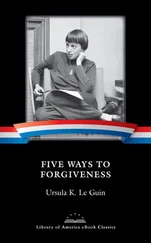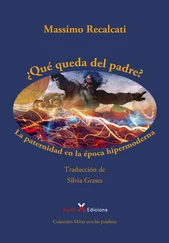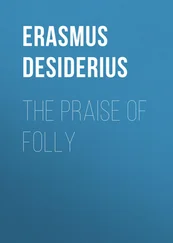2 2. See Freud, ‘Contributions to the Psychology of Love’. A highly informative Lacanian reading of Freud’s text can be found in Jacques-Alain Miller, Logiche della vita amorosa [Logic of a Love Life], ed. A. Di Ciaccia, Astrolabio, Rome 1997, pp. 11–57.
3 3. On this new and specific degradation of love, see the particularly accurate observations made by Charles Melman in L’uomo senza gravità: Conversazioni con Jean-Pierre Lebrun [Man Without Gravity: Conversations with Jean-Pierre Lebrun], trans. Bruno Mondadori, Milan 2011, pp. 32–4. For the French original, see L’homme sans gravité, Gallimard, Paris 2005.
4 4. An intense and ironic depiction of this dilemma can be found in Antonio Scurati’s novel Il padre infedele [The Unfaithful Father], Bompiani, Milan 2013.
5 5. Robin Dunbar, The Science of Love, Faber and Faber, London 2012, p. 50.
6 6. Dunbar, Science of Love, pp. 34–42.
7 7. Lacanian psychoanalyst Darian Leader goes even further in this direction with cutting irony: ‘a man who vows eternal love or demands eternal fidelity is also likely to talk silly’, in Promises Lovers Make When It Gets Late, Faber and Faber, London 1998, p. 10.
8 8. This is the thesis that Freud broadly develops in ‘Instincts and Their Vicissitudes’, demonstrating how in the build-up of instincts the only thing that really counts for the drive is its own satisfaction. The object, therefore, appears only as a means through which the drive is satisfied, as ‘[that which] is most variable about an instinct’, Freud writes. See Sigmund Freud, The Standard Edition of the Complete Psychological Works of Sigmund Freud. Vol. XIV (1914–1916): On the History of the Psycho-Analytic Movement, Papers on Metapsychology and Other Works, Vintage, London 2001, pp. 109–40, in particular p. 122.
9 9. The two main texts in which Freud theorizes love as logical blindness and an infatuated and narcissistic idealization of the self through the beloved object elevated to the ideal Ego are ‘On Narcissism: An Introduction’ and ‘Group Psychology and the Analysis of the Ego’ in, respectively: Freud, Standard Edition, vol. XIV, pp. 73–104, and The Standard Edition of the Complete Psychological Works of Sigmund Freud. Vol. XVIII (1920–1922): Beyond the Pleasure Principle, Group Psychology and Other Works, Vintage, London 2001, pp. 68–144.
10 10. This anthropological mutation is at the centre of my work L’uomo senza inconscio: Figure della nuova clinica psicoanalitica [Man Without Unconscious: Figures in New Psychoanalytic Treatment], Raffaello Cortina, Milan 2010.
11 11. See Massimo Recalcati, Clinica del vuoto: Anoressie, dipendenze e psicosi [Treating the Void: Anorexia, Addiction, Psychosis], Franco Angeli, Milan 2002.
12 12. Max Weber, ‘The Protestant Ethic and the Spirit of Capitalism’, in The Protestant Ethic and the Spirit of Capitalism, and Other Writings, Penguin, London 2002, pp. 1–200.
13 13. See Jacques Lacan, ‘Della psicoanalisi nei suoi rapporti con la realtà’ [‘On Psychoanalysis and Its Relation with Reality’], in Altri scritti [Other Writings], ed. A. Di Ciaccia, Einaudi, Turin 2013, p. 351. For the original, see De la psychanalyse dans ses rapports avec la réalité, in Autres écrits, Seuil, Paris 2001.
14 14. Zygmunt Bauman, Liquid Love: On the Frailty of Human Bonds, Polity, Cambridge 2003.
15 15. This is a thesis developed with courage and poetry in a recent text by the materialist philosopher Alain Badiou, who speaks (in a Christian sense) of love as ‘eternity descending into time’, in In Praise of Love, Serpent’s Tail, London 2012, p. 47.
16 16. Martin Heidegger, ‘The Origin of the Work of Art’, in Basic Writings, Routledge, London 2010, pp. 83–140.
17 17. Heidegger, ‘Origin of the Work of Art’.
18 18. The reference to the portulaca is an homage to Michele Serra, Gli sdraiati, Feltrinelli, Milan 2013.
19 19. See F. Scarabicchi, L’esperienza della neve [The Experience of Snow], Donzelli, Rome 2003.
20 20. Jacques Lacan, The Seminar of Jacques Lacan. Book XX: On Feminine Sexuality, The Limits of Love and Knowledge: Encore, W. W. Norton, London 1999.
21 21. See Saint Augustine, Confessions, Penguin, London 1961, pp. 164–5.
22 22. Shakespeare, Romeo and Juliet, Act 2, Scene 2, 140–1.
Конец ознакомительного фрагмента.
Текст предоставлен ООО «ЛитРес».
Прочитайте эту книгу целиком, на ЛитРес.
Безопасно оплатить книгу можно банковской картой Visa, MasterCard, Maestro, со счета мобильного телефона, с платежного терминала, в салоне МТС или Связной, через PayPal, WebMoney, Яндекс.Деньги, QIWI Кошелек, бонусными картами или другим удобным Вам способом.











